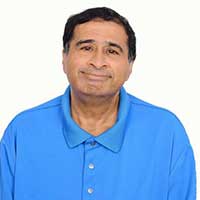Several European countries are having second thoughts about allowing youth gender transition
By Roy Eappen
and J. Edward Les
Alberta Premier Danielle Smith’s recently announced policies on restricting transgender medical interventions for minors have generated much outrage, notwithstanding a subsequent Leger poll that suggested more Canadians than not agree with her proscriptions.
Doctor groups like the Alberta Medical Association (AMA) and the Canadian Pediatric Society (CPS) came out swinging, each issuing strongly worded statements expressing grave concerns. Dr. Sam Wong, head of the AMA’s pediatrics section, argued that “this is poor legislation that is targeting a small percentage of (the) population that has already been targeted by society … and the government is piling on.”
The general public could be forgiven for concluding that doctors are collectively of one opinion on this issue. But that’s an illusion: the AMA and the CPS do not speak for all of us. There is no medical consensus on transgender medical interventions for minors.
 Roy Eappen |
 J. Edward Les |
It’s impossible to know what percentage of physicians agree with Alberta’s premier, given the high professional cost of speaking up. But as physicians who have spoken out publicly about our misgivings around youth gender transition, we can say that many doctors share our concerns. They approach us privately, both in person and electronically, to voice as much. But they shy away from offering public support because they fear condemnation and career harm.
And that, to be clear, is profoundly unhealthy, not just for the profession but most importantly for our pediatric patients. This matter deserves a full and proper hearing in the public square.
One potent argument for transitioning gender-confused children is that failure to affirm their identity may result in suicide. This line of thinking underpins the “Would you rather have a dead daughter or a trans son?” mantra peddled by trans activists and some gender clinic doctors. It’s the sort of rhetoric that leads individuals like former Calgary mayor Naheed Nenshi to say, “Premier, I want you to understand that votes aren’t worth a few dead kids.”
Fact: There is no evidence for increased rates of suicide in kids with gender dysphoria once one corrects for psychiatric co-morbidities. A just-published Finnish study in BMJ Mental Health, for instance, which studied more than 2,000 gender-dysphoric youth and compared them to 16,000 matched controls, concluded that clinical gender dysphoria is not predictive of suicide.
As for puberty blockers themselves, Dr. Wong et al. simply sweep aside legitimate concerns over the use of these drugs in physiologically normal children. Hormonal suppression of puberty may permanently alter neurodevelopment, sexual function, and bone development.
Moreover, pubertal suppression may alter the course of gender identity development – essentially cementing into place a gender identity that may otherwise have reconciled with biological sex during the natural course of puberty. Over 95 percent of youth treated with puberty-blocking GnRH analogs go on to receive cross-sex hormones, whereas up to 95 percent of those managed with psychological support alone desist from their dysphoric state during puberty.
These concerns have led multiple European jurisdictions like the United Kingdom, Norway, Sweden, Finland and France to begin tapping the brakes on youth gender transition.
Finnish physician Dr. Riittakerttu Kaltiala, one of the architects of Finland’s youth gender transition program, has done a U-turn in light of growing evidence of the program’s harm. She now says that just as with the recovered memories of the sexual abuse craze of 30 years ago, “Gender transition has gotten out of hand. When medical professionals start saying they have one answer that applies everywhere, or that they have a cure for all life’s pains, that should be a warning to all of us that something has gone very wrong.”
The U.K.’s Cass review of the now-closed Tavistock gender clinic emphasized the lack of data guiding the procedures performed there: “It is important that it is not assumed that outcomes for, and side effects in, children treated for precocious puberty will necessarily be the same in children or young people with gender dysphoria.”
France’s Académie Nationale de Médecine issued a press release in 2022 stating that “great medical caution must be taken in children and adolescents, given the vulnerability, particularly psychological, of this population and the many undesirable effects, and even serious complications, that some of the available therapies can cause.”
And just two weeks ago the European Academy of Pediatrics issued a statement urging caution, stating that puberty blockers “may irrevocably lead to the use of trans-sex hormones and surgical transition, so it may arguably compromise rather than facilitate freedom of choice …. The lack of long-term outcome data, including the psychosocial consequences of delayed puberty, is troubling and should be the focus of further research before further expansion of their use.”
All of this flies directly in the face of the professed certainty of Dr. Wong and the AMA that the benefits of youth gender transition outweigh the harms. It should raise grave questions as to why the “affirmation” model continues to be the standard of care in Canada.
Again, Dr. Wong et al. don’t speak for all of us. It’s worth remembering that the path forward in medicine and science (to borrow a phrase from Hubert Humphrey) has always been hammered out on the anvil of open debate, dissent and discussion.
We’d do well to return to that philosophy, not just for the sake of our profession, but most importantly for the sake of our kids.
Dr. Roy Eappen is a Montreal physician and a senior fellow with the Aristotle Foundation for Public Policy and Do No Harm. Dr. J. Edward Les is a Calgary pediatrician.
For interview requests, click here.
The opinions expressed by our columnists and contributors are theirs alone and do not inherently or expressly reflect the views of our publication.
© Troy Media
Troy Media is an editorial content provider to media outlets and its own hosted community news outlets across Canada.


